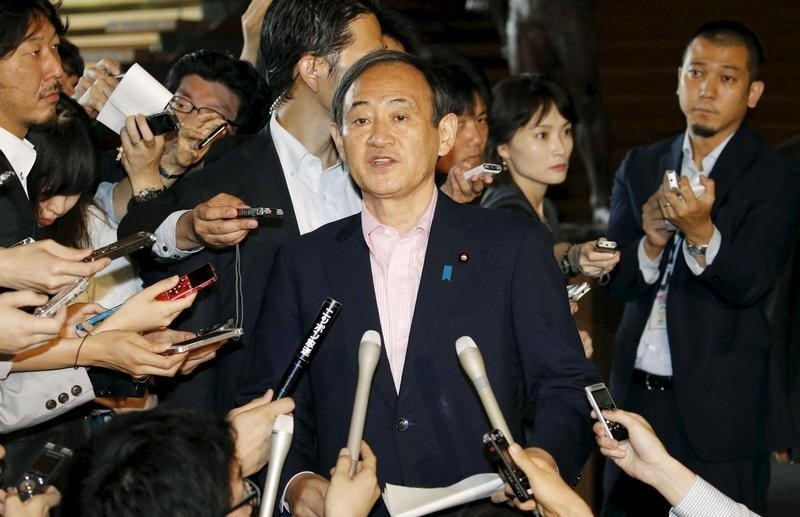(Bloomberg) -- Japan’s ruling Liberal Democratic Party officially starts its campaign for a new leader Tuesday, even though key heavyweights have already stacked the deck in favor of Prime Minister Shinzo Abe’s top aide.
Chief Cabinet Secretary Yoshihide Suga, who has enough backing from the LDP’s powerful factions to win the party vote, is expected to formally file for the race to replace Abe. Two other contenders -- former Defense Minister Shigeru Ishiba and ex-Foreign Minister Fumio Kishida -- have also said they will run to succeed Abe, who’s stepping down for health reasons.
After the filing at about 10 a.m., campaign speeches start from about 1 p.m. Suga made clear in announcing his candidacy last week that he wanted to keep in place the premier’s ultra-easy monetary policy known as “Abenomics.” Any sign of a departure from it could send the yen surging and stocks sliding, triggering a re-evaluation of the outlook for the nation.
The LDP is set to vote on its new leader on Sept. 14 and then use its majority in parliament to elect that person as the next prime minister on Sept. 16. Last week, the LDP opted for a party voting process that gives more power to lawmakers, favoring Suga. Five of the LDP’s seven factions have lined up behind Suga, who served as the backroom enforcer during Abe’s record-breaking run as prime minister.
The LDP vote is among 394 lawmakers and 141 representatives -- three each from the country’s 47 prefectures. The factions led by Kishida, with 47 members, and Ishiba, with 19 members, are the only ones not lining up behind Suga, who also leads a non-aligned group of about a dozen lawmakers.
While Suga had recently trailed in opinion surveys about Japan’s next leader, the public appears to be coming around to him. Support for Abe’s government soared 27 percentage points to 62.4% in a survey released Monday by news network JNN, with 48% of respondents saying Suga was the most appropriate choice to take over.
Abe’s abrupt decision in late August to step down due to a chronic digestive condition after almost eight years on the job left the party scrambling to find a new leader in about two weeks. The new prime minister will have no more than a year to try and revive Japan’s economy from a pandemic-induced contraction before calling a general election against a recently unified opposition.
©2020 Bloomberg L.P.
